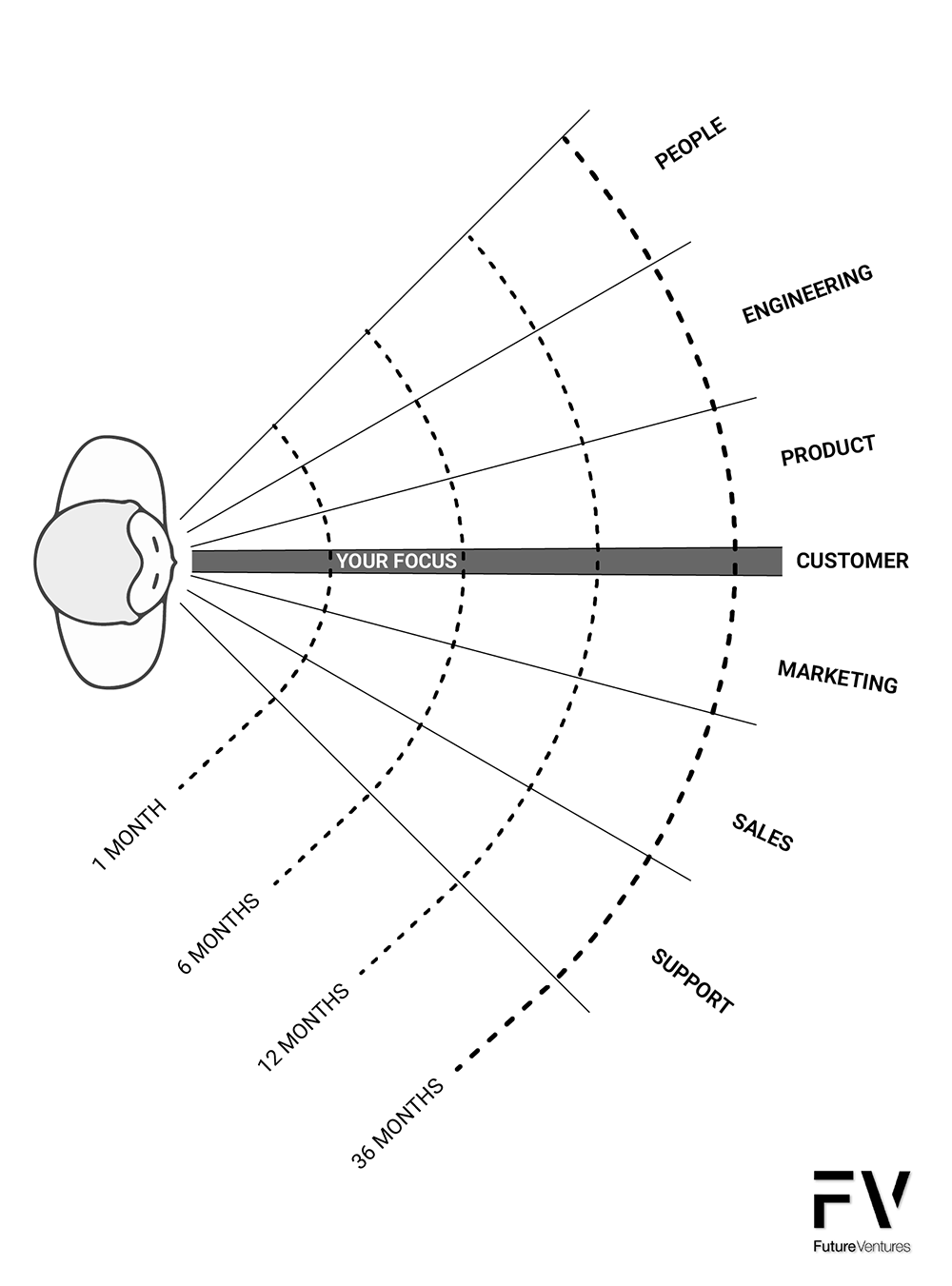How to find a Business Mentor?
Launching a company is challenging. Extremely challenging. You must embrace uncertainty, navigating the highs and lows with confidence. Be prepared to dive into unfamiliar areas and learn quickly, or seek out external expertise to propel your progress.
Entrepreneurs who work with a mentor are five times more likely to be successful in business than those who do not have a mentor. Studies have shown that small business owners who receive substantial mentoring report higher revenues and increased growth.
Why do you need a Business Mentor?
As the saying goes, “there is no substitute for experience”. Therefore, if you do not have a lot of experience in a given area, you may not know what decision to make. At the very least, you may want to sound board and check your thinking and decisions with an external, independent party who can provide valuable business advice.
That is why it is always advisable to have a trusted person by your side who has already fought the same battles. A person who can bring her/his experience and knowledge to help you see what lies around the corner, evaluate a decision with all risk factors in mind but also to help you focus your most valuable resource, your time, on the matters of greatest impact. Having a mentor can also provide the emotional support and encouragement that many small business owners need. Mentors offer guidance on various aspects, such as market expansion and financial planning, helping entrepreneurs make better business decisions.
A Business Mentor will be your greatest ally, not only to develop your leadership capabilities and elevate your performance in the role but also to further develop your business. With a mentor, you can lay the guard down, s/he is not a Director and is not evaluating your performance. Good mentors should be able to offer honest and constructive feedback without belittling the mentee.
However, finding and choosing a Business Mentor is no easy task. It must be someone you trust, someone who has the right experience, and someone who can commit the time to see you succeed. Organizations like SCORE, in the US, can help by matching entrepreneurs with experienced small business mentors. Closer to home, in Alberta, InterGen matches experienced mentors and entrepreneurs. There are also tens of matching apps as well as peer networks.
In this article, we will not only talk about the ideal characteristics that a Business Mentor should have but also explain the benefits to your business of partnering with a Business Mentor and the steps to do it.

What is Business Mentoring?
Business mentoring is a relationship between you and an experienced professional who provides guidance, support, and valuable insights to help small business owners develop and grow their businesses, be it running or scaling a business, subject matter, domain area or core skills expertise. This person will offer you advice, guidance and support in the different phases of your business. Many mentors are industry leaders who bring a wealth of experience and knowledge to the table, significantly impacting one's career and business strategies.
Meetings with a mentor can be
in person,
via video call, or
a combination of both. The key is that each of these meetings gets you closer to your defined goals and objectives. A good mentor will work with you on establishing your goals and objectives and keep you accountable for achieving them.
Definition of a Business Mentor
A business mentor is a seasoned professional who offers guidance, support, and valuable insights to assist small business owners in developing and growing their businesses. Unlike business consultants, who offer specialized expertise on a project or contract basis, business mentors are in it for the long haul. They become long-term partners, offering a unique blend of emotional support, encouragement, and practical advice. Business mentors are not just about solving immediate problems; they are about fostering long-term growth and development. They help small business owners navigate the complexities of running a business, providing a steady hand and a wealth of experience to draw upon.
Role of a Business Mentor in Business Development
A business mentor plays a crucial role in business development by providing small business owners with the guidance, support, and resources they need to succeed. A good business mentor can help entrepreneurs avoid common mistakes, make smart strategic decisions, and navigate challenging situations.
They offer a sounding board for ideas and concerns, helping small business owners develop their skills and make informed decisions. Business mentors also provide emotional support and encouragement, which is essential for maintaining motivation and accountability. By leveraging their experience and knowledge, business mentors can help small business owners achieve long-term success and growth.
Benefits of Having a Business Mentor
Having a business mentor can have a significant impact on the success of a small business. Some of the benefits of having a business mentor include:
- Access to a Wealth of Knowledge and Experience: Business mentors bring a vast reservoir of knowledge and experience from their own business journey. They can provide insights and advice that are not readily available through textbooks or online resources. This can help small business owners make informed decisions and avoid common pitfalls.
- Networking Opportunities: A business mentor can open doors to a broader network of industry leaders, potential partners, and customers. This expanded network can lead to new opportunities and collaborations that might not have been possible otherwise.
- Enhanced Problem-Solving Skills: Mentors can guide small business owners through complex challenges by offering different perspectives and solutions. This can enhance the mentee's problem-solving skills, making them more adept at handling future issues independently.
- Confidence Building: Having a mentor who believes in your abilities and provides constructive feedback can significantly boost your confidence. This increased confidence can translate into better leadership and decision-making skills.
- Lifelong Learning and Development: Mentorship is a continuous learning process. As small business owners grow and develop, their mentors can provide ongoing guidance and support, ensuring that they are always learning and adapting to new business environments.
- Increased Accountability: Regular check-ins with a mentor can keep small business owners accountable for their goals and objectives. This accountability can drive motivation and ensure that progress is being made towards achieving business milestones.
- Emotional Resilience: The entrepreneurial journey can be emotionally taxing. A mentor can provide the emotional support and encouragement needed to navigate the highs and lows, helping small business owners maintain their resilience and focus.
Additional benefits of having a business mentor include:
- Improved leadership and decision-making skills
- Increased confidence and self-esteem
- Enhanced business skills and knowledge
- Access to proven business tools and resources
- A stronger network of contacts and connections
- Improved accountability and motivation
- A sounding board for ideas and concerns
- Emotional support and encouragement
By providing these benefits, a business mentor can help small business owners achieve their goals and succeed in their business journey.
Differences Between a Business Mentor and a Business Coach
Although they may seem to be the same thing and can sometimes be confused with each other, the reality is that there are some major differences between a Business Mentor and a business coach:
- The biggest difference is that a Business Mentor focuses primarily on the mentee, the “racecar driver,” and not the racecar. Strategy cannot succeed without culture and execution. Business coaches, on the other hand, primarily focus on developing and optimizing the business.
- Another big difference is the time they can work with you. If you have a good relationship with a Business Mentor, they can help you throughout the life of your business. On the other hand, business coaches usually set a limit of 1 year.
- Also, while Business Mentors are most driven by the development of the mentee, business coaches are driven by the performance of the business.
But the lines are often blurred. How do you separate the leader from the business? They are so often intertwined that business mentors, from time to time, guide business decisions, and business coaches focus on the individual to drive the achievement of a business outcome.
What are the characteristics of a good Business Mentor?
While finding the right business mentor may seem easy, it’s much harder than you think. If you want to forge a long-term relationship with the right business mentor that can help you scale new heights and be successful, here are some of the characteristics that they should possess: Attending networking events in your city can help you connect with experienced entrepreneurs.
1. Enthusiasm
A business mentor can help small business owners stay enthusiastic and motivated, even in the face of challenges and setbacks. By providing emotional support and encouragement, business mentors can help entrepreneurs stay focused on their goals and maintain a positive attitude. The best mentors will let you know through their actions and commitments to you that they are truly excited to see you grow and succeed. They derive gratification from your success. It is their way of driving impact on those around them.
2. Active Listening
A good business mentor is an active and effective listener who is able to understand the needs and goals of the small business owner. By listening carefully to concerns and ideas, business mentors can offer valuable insights and guidance, helping entrepreneurs make informed decisions and avoid common pitfalls.
3. Honest Feedback
A good mentoring relationship is forged based on trust and empathy. For that reason, a good Business Mentor should collaboratively work with you to arrive at the actions that you should take to improve. A mentor tells you what you need to hear and not what you want to hear.
There is nothing more caring than providing radical candour. But while this sounds simple, it is not. The ways in which feedback is given are also important. A Business Mentor should help you see the “so what” and unlock the value behind a desired change. Instead, the feedback should be focused on
preventing certain mistakes or
implementing actions to help correct them. They often role-play specific conversations with you to help you get through difficult situations.
4. Accountability
Developing a close relationship over time is inevitable. But a good mentor is the one that keeps the mentee accountable to:
- Send the agenda in advance
- Come prepared for the conversation
- Define actions and outcomes
- Provide updates on progress
- Recognize and celebrate progress.
5. Great Motivator
Entrepreneurship is like a rollercoaster with lots of highs and lots of lows. A Business Mentor should be someone who can
motivate you to set new goals for yourself and the
company through association. A great mentor is like a
mirror for her/his mentees in which they can reflect themselves to and learn from the experience of the mentor. Mentors also provide access to valuable networks and can introduce entrepreneurs to potential partners and customers.
Steps to finding a Business Mentor
Finding a mentor is great, but the key to successful mentoring is coachability. The mentor search process is crucial to ensure you find the right fit. Start by identifying what you need help with and look for mentors who have expertise in those areas. Use platforms like LinkedIn to connect with potential mentors, and don't hesitate to reach out to people you admire. Establishing clear goals for the mentor relationship helps identify the right mentor and ensures a more fruitful mentoring experience.
1. Characteristics of your ideal Business Mentor
While we already talked about the ideal characteristics that a Business Mentor should have, you should also think about what characteristics are best suited to your type of startup to find the right mentor. Some aspects you should consider are:
- What is the market in which your Business Mentor should have the most experience?
- Are you looking for someone who has experience managing companies, expert in a specific domain or a leadership coach?
- How often do you want to have meetings with your mentor?
- Do you want to work with a person with whom you can have face-to-face meetings, or do you prefer virtual meetings?
2. Identify your potential mentor
Knowing where you are going helps you get there faster. Knowing what kind of mentor you are looking for is a very important step, but so is knowing
who your potential mentors are. Nowadays, there are different resources you can use to get in touch with potential Business Mentors: Joining an incubator or accelerator is a way to connect with experienced entrepreneurs. Additionally, more than 1,000 Small Business Development Centers (SBDCs) operate across the US, offering valuable resources for entrepreneurs. Additionally, the Small Business Administration (SBA) provides resources and support for small businesses, particularly through partnerships with local Small Business Development Centers (SBDCs).
- Your own network
- Personal or professional referrals
- Professional associations
- Accelerators
- Thought leaders in your industry
- Small Business Development Centers (SBDCs), which provide free business consulting and training to entrepreneurs.
As you find Business Mentors who might be a good fit for you, we advise you to add them to a list, as this will be a great help in the next step.
Refer to the Business Mentorship Programs and Organizations article for a list of potential programs in Canada.
3. Contact potential Business Mentors
This step is very important, as it will determine whether a Business Mentor will want to work with you or not. Research, research, research. Then, ask a friend or a business acquaintance for a referral. A warm referral is far more likely to open doors. If that is not possible, our advice is to do it the old-school way: pick up the phone and call. You are far more likely to create engagement and gauge sentiment over a call than over email. Entrepreneurs usually receive hundreds of emails per day. Therefore, do whatever it takes to stand out in a good way. Establish clear communication standards with your mentor from the beginning.
Whenever possible, try to arrange in-person meetings, as they can foster better communication and understanding.
Contacting them
through social networks to coordinate a meeting is an option. LinkedIn or Twitter remain the two best options. However, to
pique the interest of a Business Mentor, and have a real chance of accepting to work with you, you need to take into account certain key aspects:
- Don’t bombard them with calls or messages. Chances are they have so many messages that they may not have been able to check yours. A good strategy is to contact them once, then two weeks later and finally once a month.
- Be prepared. Once a potential Business Mentor responds to you, you should be ready to convince him or her that working with you is a good idea, so as not to waste his or her time. A good idea is to have some specific questions ready that he can answer in a meeting.
Try to adjust to their time. If a potential Business Mentor offers you
a specific day and time to meet with you, make
every effort to be free at that time. That way, the mentor won’t have to fit into your personal schedule.
4. Agree on the expectations with your mentor
If an expert agrees to be your Business Mentor, you will have taken a big step towards
elevating your performance. But before you can start working together, it's a good idea to discuss
some formal details of mentoring:
- What are their expectations of the relationship? What would a successful relationship look like for them?
- How will the mentoring take place? Virtual, face-to-face or a mix of both?
- What media does your mentor usually use?
- What are your and your mentor's expectations about the mentoring?
5. Maintaining the relationship with your mentor
Finding a mentor is great. But the key to successful mentoring is coachability. The Business Mentor is taking you on because they see potential in you. The surest way to destroy a mentoring relationship is not to heed the advice of your mentor and to not be accountable. Here are some tips on how to drive a successful relationship: Regular check-ins with your mentor help maintain the relationship over time.
- Be flexible, be receptive and pay full attention to the advice. If an expert has decided to work with you,, the least you can do is to heed to the advice he or she gives you.
- Respect is key. Always make sure to stay true to the expectations that have been set before the mentoring begins. It may seem basic, but it can often happen that, because the startup founder has asked for many more meetings than agreed, the Business Mentor decides not to continue with the mentoring.
- Try to add value to the relationship. Even though your mentor may be
more experienced than you, you should always try to ensure that he or she can also take something of value away from the mentoring. Give back generously, every chance you get.
Final Thoughts
Finding a Business Mentor is hard work, but they could be a catalyst for success. Remember that
maintaining the relationship with your Business Mentor is as important, if not more important, than finding him or her. Therefore, you should be respectful, be curious, be coachable and always deliver on your commitments. And give back generously. This way, both of you can
build a mutually beneficial relationship.










